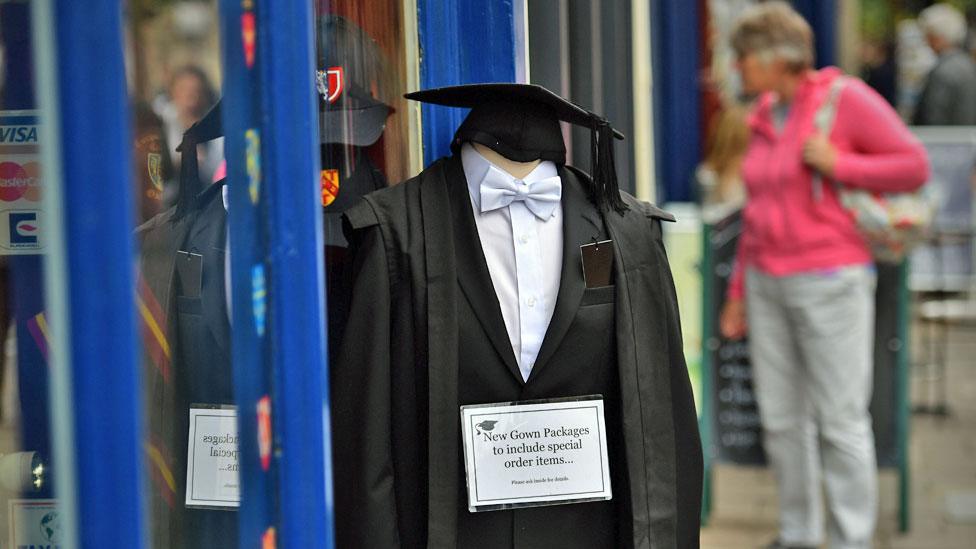Oxford University to increase bursaries for low-income students
- Published

Oxford University is increasing the amount of money given to students from low-income backgrounds.
From 2020 students whose parents or guardians earn low incomes could receive up to £5,000 a year in non-repayable bursaries.
The institution said it was important to attract children from "under-represented and disadvantaged backgrounds".
About 25% of UK students at the university receive funding.
The university already provides about £8m a year in financial support, but it is increasing the amount offered to people who are eligible for the Moritz-Heyman Scholarship.
Currently students whose parents earn up to £27,500 receive between £3,700 and £1,700. By 2020 this will increase to between £5,000 and £4,200.
'Strong feedback'
Students whose parents earn between £27,501 and £42,875 will be eligible for bursaries of between £2,000 and £500.
Director of student fees and funding Dr Jane Gover said: "There's been really strong feedback from our own students that what they most value is upfront funding to help them in their time as a student, which is why we're increasing those funding levels."
"This is a really huge part of the university work to attract and support undergraduates from under-represented and disadvantaged backgrounds.
"We don't want to see students being put off because they're worried about the cost of living, or their ability to engage with university life."
Last year Oxford and Cambridge were accused of being socially exclusive in that they recruit more students from eight top schools than almost 3,000 other UK state schools put together.
The Sutton Trust social mobility charity said leading universities were failing to attract a wide enough range of talent.
In December Oxford University said it was "very aware" that it "must work harder".
- Published7 December 2018
